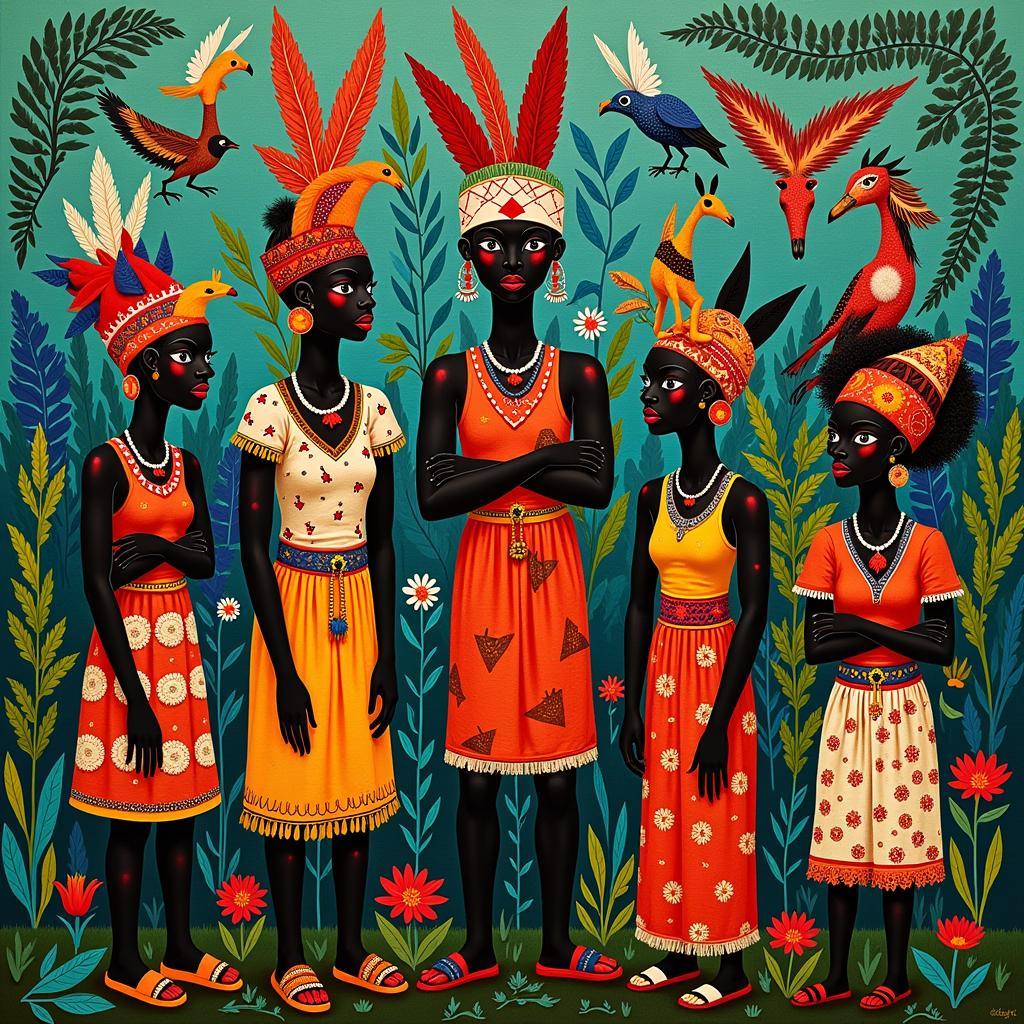African First Nobel Laureate: Wole Soyinka (1986)
Wole Soyinka, the African first Nobel Laureate, achieved this prestigious recognition in 1986. His award marked a significant moment for African literature and brought global attention to the rich tapestry of storytelling and artistic expression emerging from the continent. This article delves into Soyinka’s life, work, and the impact of his Nobel Prize.
Wole Soyinka: A Literary Giant and the African First Nobel Laureate
Wole Soyinka’s journey to becoming the african first nobel laureate was paved with both literary brilliance and unwavering activism. Born Akinwande Oluwole Babatunde Soyinka in 1934 in Abeokuta, Nigeria, he demonstrated a precocious talent for writing from a young age. His early exposure to both Yoruba traditions and Western education shaped his unique literary voice, blending indigenous narratives with global perspectives. He attended Government College in Ibadan and later University College Ibadan before completing his studies at the University of Leeds in England. Soyinka’s career spanned various genres, including plays, poems, novels, and essays, all imbued with a powerful social and political consciousness.
The Significance of the 1986 Nobel Prize in Literature
The 1986 Nobel Prize awarded to Soyinka was not only a personal triumph but a watershed moment for African literature. It was the first time the prestigious award recognized an African writer, validating the continent’s literary contributions on the world stage. This recognition shattered preconceived notions and opened doors for other African writers to gain international acclaim. Soyinka’s win highlighted the power of literature to address social injustices, challenge oppressive regimes, and amplify marginalized voices. It also inspired a new generation of African writers to embrace their own stories and contribute to the growing body of African literature.
Key Themes in Soyinka’s Work
Soyinka’s writing often explores themes of colonialism, corruption, and the struggle for freedom and justice. His plays, such as “Death and the King’s Horseman” and “The Lion and the Jewel,” delve into the complexities of cultural clashes and the enduring power of tradition. He masterfully weaves Yoruba mythology and folklore into his narratives, creating rich and layered stories that resonate with both local and international audiences. His works are characterized by a sharp wit, lyrical prose, and a deep understanding of the human condition.
Why Was Wole Soyinka Awarded the Nobel Prize?
The Nobel Committee recognized Soyinka “african first nobel laureate” for his “wide cultural perspective and poetic overtones fashion the drama of existence.” This statement encapsulates the breadth and depth of Soyinka’s writing, which tackles profound existential questions while remaining grounded in the specific socio-political realities of Africa. His work transcends geographical boundaries, offering universal insights into the human experience.
Soyinka’s Legacy: Beyond the Nobel Prize
Wole Soyinka’s influence extends far beyond his literary achievements. He has been a vocal critic of political oppression and a staunch advocate for human rights throughout his life. His activism has often placed him at odds with authoritarian regimes, leading to imprisonment and exile. However, his commitment to justice and freedom has remained unwavering, making him a symbol of resistance and resilience for many across Africa and the world.
Conclusion
Wole Soyinka, the african first nobel laureate in 1986, remains a towering figure in African literature and a global icon of intellectual and political courage. His literary contributions have enriched the world’s understanding of African culture and the complexities of the human experience. His unwavering commitment to justice and freedom continues to inspire generations to strive for a better world.
FAQ
- When did Wole Soyinka win the Nobel Prize? 1986
- What nationality is Wole Soyinka? Nigerian
- What genre of literature is Wole Soyinka known for? Plays, poems, novels, and essays
- What are some key themes in Soyinka’s work? Colonialism, corruption, freedom, and justice.
- Why is Wole Soyinka considered a significant figure? His literary achievements and his political activism.
- What is the title of a famous play by Wole Soyinka? “Death and the King’s Horseman”
- What did the Nobel Committee cite as the reason for awarding Soyinka the prize? His “wide cultural perspective and poetic overtones fashion the drama of existence.”
For support, contact us at +255768904061, [email protected], or visit us at Mbarali DC Mawindi, Kangaga, Tanzania. We have a 24/7 customer service team.

